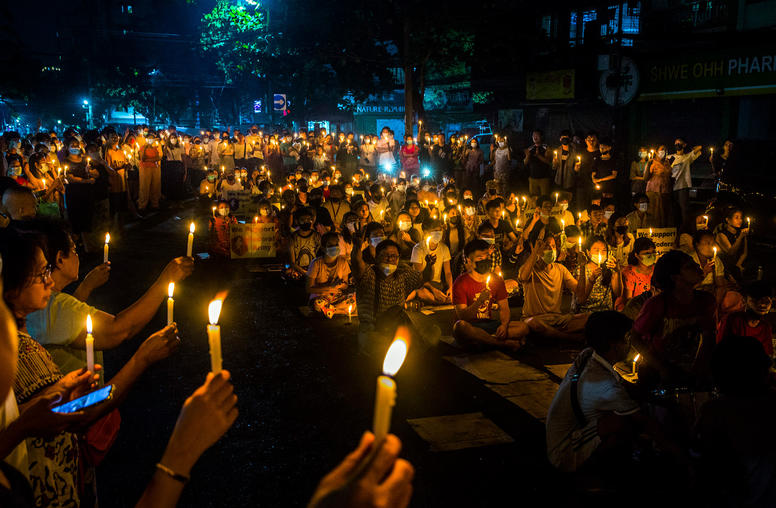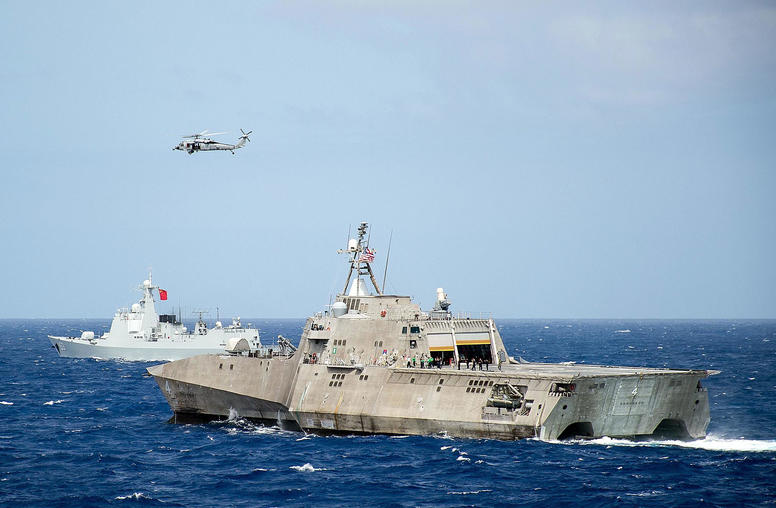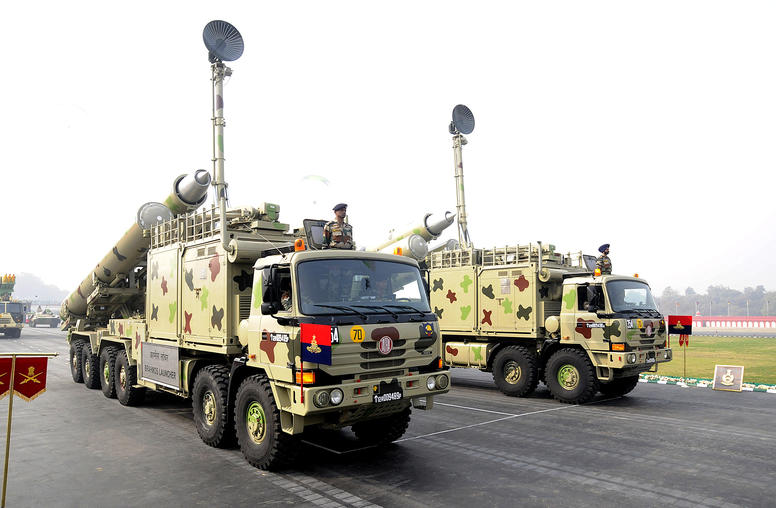 India
India
As the world’s largest democracy and the dominant regional power in South Asia, India has become a cornerstone for U.S. strategy in the Indo-Pacific. USIP works to inform policymakers and practitioners through research, analysis and convening on India’s growing strategic partnership with the United States, in addition to the regional conflict dynamics. Priority themes of focus for the USIP India program include the bilateral tensions between India and China; the emerging strategic balance between India and its nuclear-armed neighbors; and regional conflict drivers — including complex post-colonial disputes, fragile democratic institutions, climate and resource pressures, and competition among a growing, heterogeneous population.
Featured Publications

INDUS-X at One: A Year of Bilateral Breakthroughs
Amid warming bilateral ties, India and the United States have steadily built their defense relationship over 20 years. More recently, shared concern over China’s rise and projection of power has motivated a renewed focused on institutionalizing the relationship at the highest levels while building the connective tissue necessary to innovate and collaborate effectively in support of preserving a free and open Indo-Pacific region.

Modi Walks a Diplomatic Tightrope in Ukraine
Indian Prime Minister Narendra Modi visited Kyiv on Friday, marking the first time an Indian leader has gone to Ukraine since its 1991 independence. Ukrainian officials said the visit demonstrated diplomatic backing for the war-torn nation, as it looks to build support among non-Western nations ahead of any potential negotiations on a settlement to the conflict. Although India has long-standing close ties with Russia, it has sought to portray a neutral stance on the conflict. As part of Modi’s bid to boost India’s international clout, he wants to demonstrate that Delhi can play a constructive, “friendly” role in resolving the war.

U.S., India Cooperation Can Help Get Humanitarian Aid Across Myanmar Border
Three years into Myanmar’s Spring Revolution, the country’s humanitarian crisis is only worsening. The Myanmar military continues to compensate for territorial defeats by punishing the civilian population with air strikes and large-scale arson attacks.
Current Projects

Religious and Psychosocial Support for Displaced Trauma Survivors
Since spring 2021, USIP has been identifying best practices in psychosocial support to better facilitate collaboration and cooperation between religious actors and mental health professionals who provide services to conflict-affected communities, including trauma-affected displaced persons. This thematic area of work focused initially on Latin America as a pilot region and has since expanded to the Asia and European contexts — offering practical and evidence-based recommendations to relevant stakeholders.

Crisis Communications with China in the Indo-Pacific
In today’s era of strategic competition between the United States and China, crises are more likely than ever in the Indo-Pacific region. Effective mechanisms are therefore needed to prevent such crises from escalating into armed conflict. To this end, USIP is examining crisis communication mechanisms and negotiations between China and its regional neighbors to identify common issues and themes across countries to provide lessons that can be learned and shared.

Senior Study Group on Strategic Stability in Southern Asia
Beginning in June 2021, USIP convened a group of senior experts to assess concerns that recent geopolitical and technological trends increasingly threaten the tenuous stability of Southern Asia. Over seven virtual plenary sessions, the senior study group assessed the changing capabilities, doctrines, threat perceptions and crisis response behavior of the main regional nuclear actors. Their final report summarizes those findings, considers U.S. policy options and identifies priority recommendations for the resolution or mitigation of core disputes, the enhancement of regional strategic stability, and the management of potential future crises.